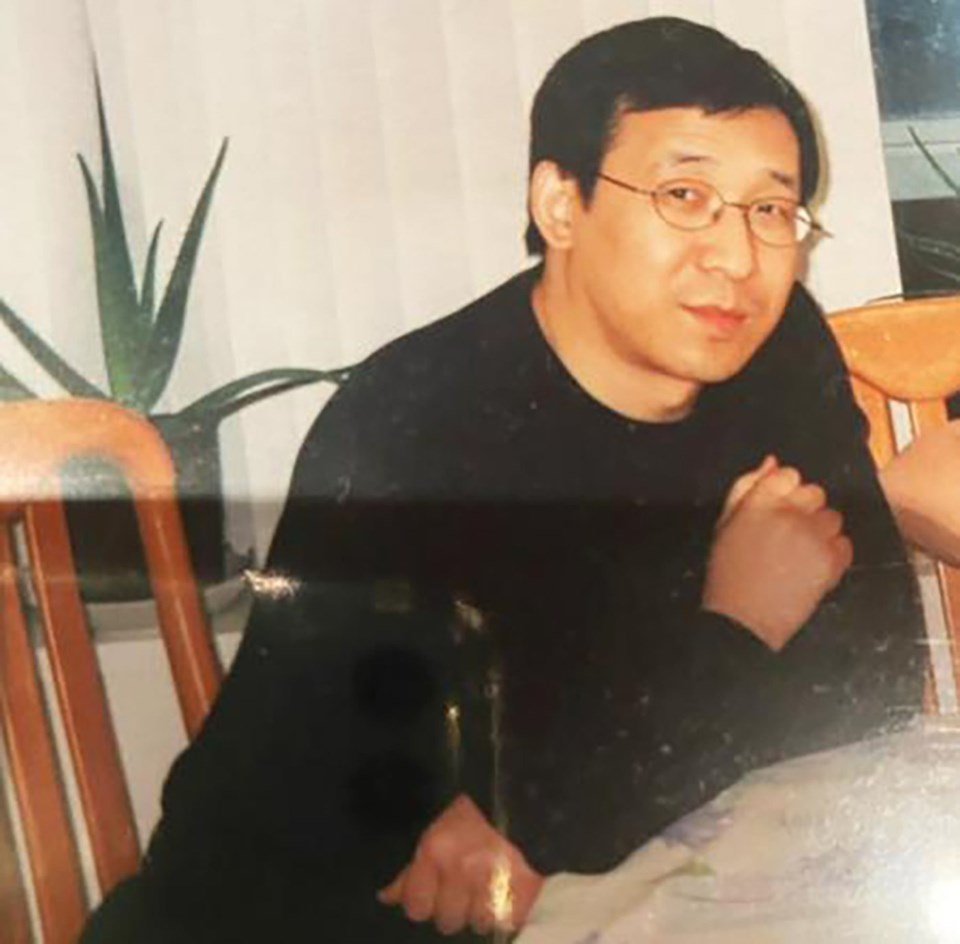VANCOUVER — Wang Yan vividly recalls the last time she heard her husband's voice, more than five years ago.
It was Dec. 13, 2019, and Canadian citizen Li Yonghui had gone to a public square in Shijiazhuang, in China's Hebei province, to exercise as he spoke to his wife in Canada by mobile phone.
"Suddenly, the call ended, like someone was grabbing his phone. And I called other family (in China) and no one knew what happened," Wang recalled.
Li had been seized by city police, who accused him in a social media post of "allegedly gathering public funds illegally" through his company Qingyidai, a platform for person-to-person lending.
Li has been in detention ever since, without ever being tried or sentenced.
Now, his family is taking the rare step of speaking out publicly to seek a resolution to his case.
Global Affairs Canada says it's aware of about 100 Canadians incarcerated in China.
However, it's uncommon for their families to speak out in Canada or to press for decisions on their situations.
Chinese authorities began a crackdown in 2019 on online lenders, but Wang maintains her husband's innocence in operating Qingyidai, which Chinese media had described as the largest such platform in Hebei.
"Of course, we believe he's innocent, but if he did violate some laws or rules, please put him on trial and sentence him," Wang said in an interview with The Canadian Press in Vancouver where Li's family lives.
"We have no qualms about that … but it's been years where nothing has happened."
Wang said Li has had no visits in the Hebei detention centre from anyone besides his lawyer and staff from the Canadian Embassy.
Li's daughter, Wandi Li, was 21 when her father was arrested. She regrets that she "basically grew up a little bit in my adult life without him."
"My dad, he has this habit of not really talking about himself," Wandi Li said, recalling their last conversation before his arrest.
"He just asked me about what's going on in my life," she said.
"I'm the youngest of my family, so there's always this tendency to shield me a little bit from what's going on."
In an email response to questions, Global Affairs Canada said it was aware of Li's detention and was providing consular assistance, but no additional details were being released due to privacy considerations.
The comments by Li's family come after Foreign Affairs Minister Mélanie Joly said last month that four Canadians were executed by Chinese authorities recently, all with dual citizenship and all accused of drug-related crimes.
Former Chinese detainee Michael Kovrig said by email that he would advise relatives of detainees to "get a good Chinese lawyer."
He said he would also press the Canadian government to advocate for the detainee as well as contact human rights organizations — but that could antagonizing Chinese authorities.
"Understand there’s a risk that if you press for a decision, the court may give a relatively harsh sentence," he said. "What they want is repentance and confession, and they may be willing to offer a lighter sentence in return for that.
"It would be up to the lawyer to negotiate that."
Kovrig and fellow Canadian Michael Spavor were detained by China in 2018 and held for more than 1,000 days, accused of spying in a case the Canadian government said was as a bogus effort to pressure Canada to release Huawei executive Meng Wanzhou.
Wang said she was unable to comment on the recent executions in China as she is not familiar with the circumstances surrounding those cases.
But she said their family is increasingly concerned as Li's detention lingers and health issues have emerged. She said her husband had high blood pressure and his guards were refusing to allow him to see a dentist.
Kovrig said that Wang not being allowed to speak to her husband is consistent with what he had seen of others in Chinese custody.
He said that while conditions may vary between different detention centres, Chinese facilities typically "don’t meet the basic standards of the UN’s Nelson Mandela Rules," referring to the United Nations' minimum standards for prisoners' treatment.
"Detainees are typically confined to a cell with only limited access to an outdoor area to move around," he said. "Very limited access to books to read. No media. No writing materials. Maybe some television in the evening. Sleep on a hard … bunk in a crowded cell with multiple cellmates.
Detention also likely means constant surveillance, limited bathroom facilities and "zero privacy," Kovrig said.
Wandi Li said she is holding out hope for her father's safe return to Canada.
"Our hope is just that the word does get around, and that hopefully because if more people know about it, maybe the government in China will be a little more swayed to make a decision on the case and free my dad," she said.
Wang Yan said she was aware of possible risks in speaking out, but all she wants is movement and certainty in her husband's case.
"We don't have a choice," she said.
This report by The Canadian Press was first published April 5, 2025.
Chuck Chiang, The Canadian Press




